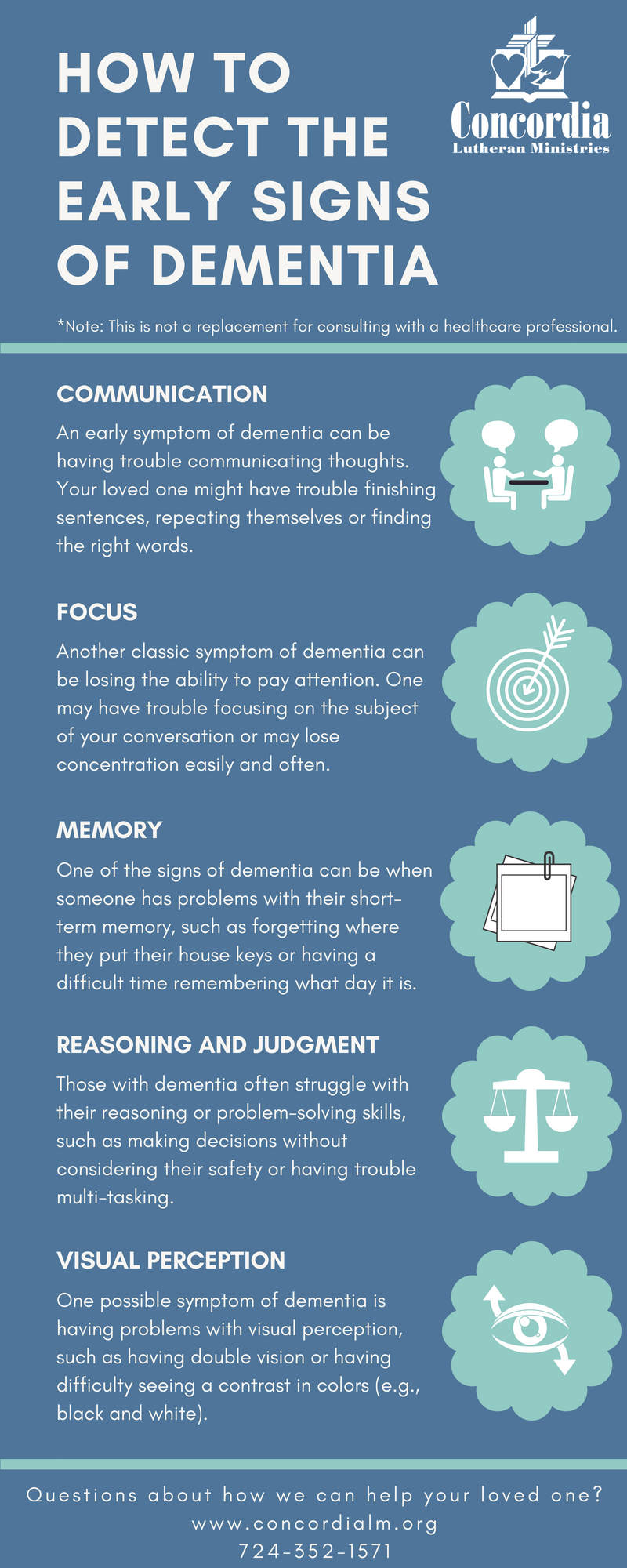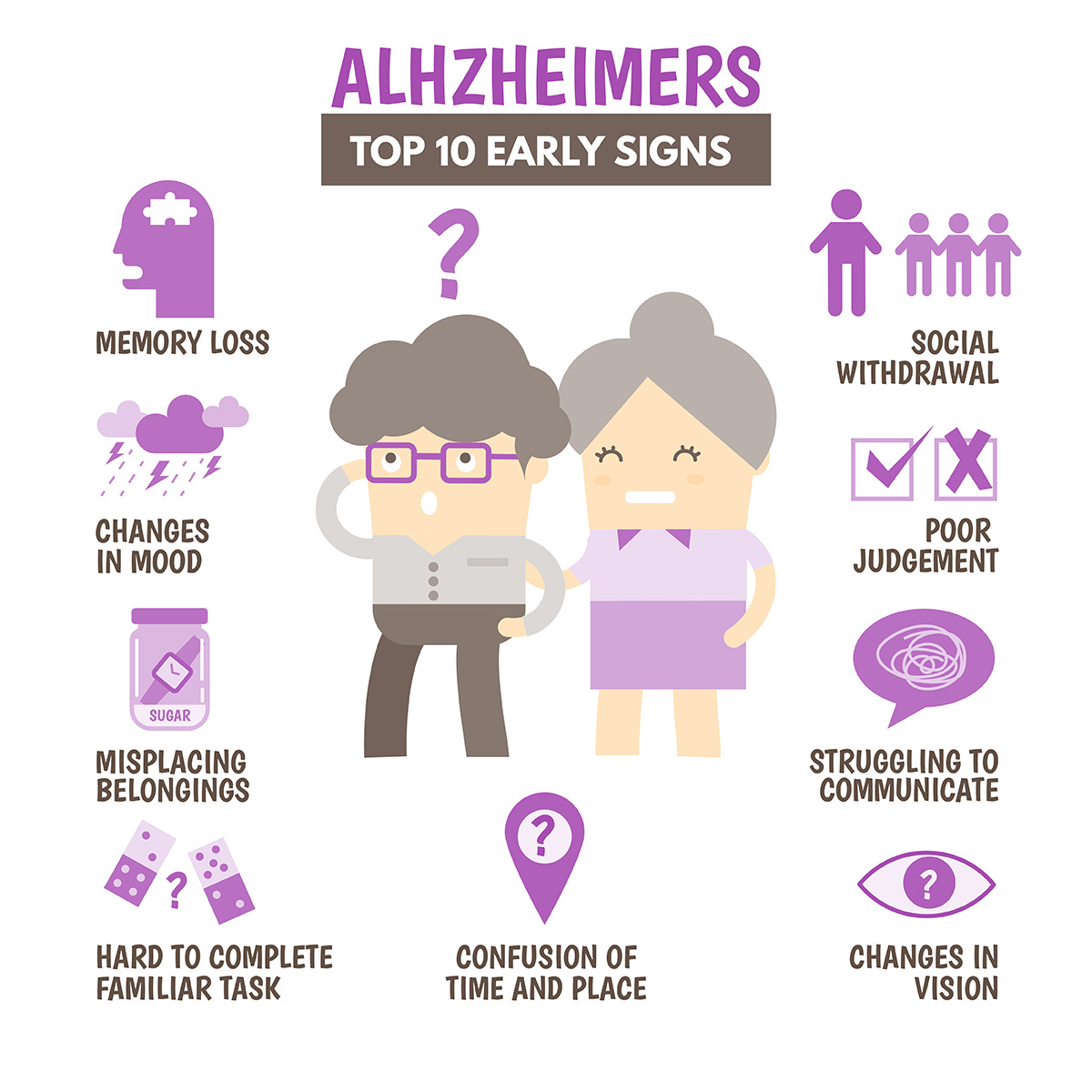Checklist: How to Safeguard Your Home Against Fall Risk for Seniors
Checklist: How to Safeguard Your Home Against Fall Risk for Seniors
Blog Article
Recognizing the Impact of Dementia on Every Day Life and Caregiving
Mental deterioration influences day-to-day live in profound methods, affecting not just those diagnosed but also their caregivers. As cognitive decline advances, you might see modifications in communication and regular that challenge both events. Understanding these changes is vital for maintaining self-respect and engagement. Yet how do you adjust your caregiving techniques to sustain somebody traversing this complex journey? The responses might stun you as we check out the nuances of this experience.
The Stages of Mental Deterioration and Their Effects on Every Day Life
As you navigate the trip of dementia, recognizing its stages can considerably affect how you take care of daily life. Mental deterioration generally proceeds through 3 main phases: early, center, and late. In the onset, you could notice occasional memory gaps or trouble discovering the best words. This can bring about frustration, however identifying these indicators early aids you adjust your regular and look for assistance.
During the middle phase, you'll experience a lot more obvious cognitive decrease. Daily tasks might become tough, and preserving your independence might call for modifications. Making use of pointers and streamlining your environment can aid.
In the late stage, people usually require considerable support with daily tasks. Preparation for care becomes crucial, concentrating on comfort and lifestyle. By understanding these phases, you're much better geared up to respond proactively, ensuring you or your loved one can browse the obstacles with self-respect and poise.

Modifications in Communication and Social Communication
Exactly how do changes in interaction influence your daily communications as mental deterioration proceeds? As mental deterioration developments, you could notice that easy discussions become tough. Words may escape you, or you may have a hard time to locate the best expressions. This can lead to irritation for both you and your loved ones. Nonverbal hints, like gestures or facial expressions, end up being significantly essential.
You might locate it easier to connect via these means as opposed to depending only on talked language. Listening skills can additionally alter; you might locate it tougher to keep in mind or follow discussions what was just claimed (Fall Risk). This can bring about misunderstandings or feelings of seclusion
Motivating patience and producing a supportive atmosphere can help. Participating in tasks that promote connection, like songs or art, can enhance social interactions. Bear in mind, maintaining partnerships is still possible; it's practically adjusting to new means of connecting.
Impact on Daily Routines and Activities
While navigating day-to-day regimens, you'll likely notice that tasks you once finished easily become extra challenging as dementia progresses. You may discover on your own failing to remember actions in acquainted regimens or battling to remember where you positioned things.
Adapting your environment can assist; for instance, classifying products or using lists can simplify tasks. Involving in repetitive, organized activities can also give comfort and a sense of success. Bear in mind, it's fine to ask for assistance.
Emotional and Behavioral Obstacles
Steering via everyday routines can bring around not just functional difficulties, but behavior and likewise psychological ones. You might notice modifications in state of mind, such as enhanced anxiety or aggravation, which can originate from confusion or trouble in completing jobs. As you browse these minutes, it is important to identify that your loved one might express their sensations with behaviors like frustration or withdrawal.
These emotional feedbacks can be unforeseeable and might develop without caution, leaving you both sensation overwhelmed. You could locate that familiar settings or routines can assist lower anxiety, yet preserving patience ends up being considerable. It is necessary to verify their sensations, even if you don't fully recognize them.
The Role of Caregivers in Sustaining People With Dementia
As a caretaker, you play a necessary function in giving emotional support for people with dementia. Establishing day-to-day care regimens can develop a sense of security and comfort, assisting to reduce their anxiety. By recognizing their requirements and making use of reliable approaches, you can considerably boost their top quality of life.
Psychological Assistance Strategies
When caring for somebody with dementia, comprehending the emotional landscape is essential for offering efficient support. You'll typically discover that patience and empathy go a lengthy means. Verify their sensations; if they reveal confusion or disappointment, acknowledge it without dismissing their feelings. Straightforward motions, like holding their hand or preserving eye get in touch with, can create a complacency. Attempt to participate in tasks that they appreciate, as this can trigger joy and connection. Remember to communicate plainly and slowly, utilizing a tranquil tone. Encourage expression with songs or art, which can serve as a powerful outlet. Inevitably, do not neglect to look after your own psychological demands; looking for support for on your own more info here can improve your ability to look after them. try these out
Daily Care Routines
Establishing day-to-day care regimens is necessary for supplying security and comfort to individuals with mental deterioration, as these regimens can help in reducing confusion and stress and anxiety. You can begin by detailing a regular schedule for meals, tasks, and rest. This predictability assists your enjoyed one feel much more safe and secure and engaged.
Integrate familiar tasks, like folding washing or watering plants, which can evoke positive memories and cultivate a sense of success. Use visual signs, such as calendars or lists, to assist them with the day.
Be versatile, though; adjust regimens as required based on their mood or energy levels. Frontotemporal Dementia. Bear in mind, your patience and understanding are essential in steering their altering demands, guaranteeing they really feel supported and valued throughout their every day life
Producing a Safe and Comfortable Living Atmosphere
Producing a comfy and secure living setting is vital for individuals with dementia. You'll wish to make home security adjustments that minimize dangers and ensure experience to supply a feeling of convenience. By concentrating on these elements, you can assist produce a room that sustains both safety and well-being.
Home Safety Modifications
As you browse the difficulties of mental deterioration, making home security adjustments can greatly enhance comfort and security. Start by removing tripping threats like carpets and clutter, assuring sidewalks are clear. Set up grab bars in restrooms and non-slip mats in the shower to prevent drops. Take into consideration utilizing brighter lighting and night lights to improve presence, specifically during nighttime. Label vital areas, such as the washroom and kitchen, with clear signs to aid with orientation. Protect any kind of sharp things or toxic compounds unreachable. Additionally, analyze your home's alarm systems and locks to validate they're easy to use and give comfort. These modifications not only advertise safety and security however also encourage freedom, enabling your liked one to feel more secure in their setting.
Comfort and Familiarity
After ensuring a secure environment with essential adjustments, cultivating comfort and knowledge is vital for individuals with mental deterioration. Start by individualizing their space. Usage acquainted shades, designs, and pictures that stimulate satisfied memories. A favored blanket or chair can give a feeling of safety and security. Keep a constant routine to help them really feel grounded and reduce anxiety. Straightforward, familiar meals can also develop a calming environment. Keep paths clutter-free and clear to prevent complication. Integrate soft lights, as bright lights can be more info here disorienting. Think about adding comforting aromas, like lavender, to promote leisure. Taking part in acquainted activities, such as listening to songs or gardening, can enhance their sense of belonging, making their living setting a real refuge.
Strategies for Efficient Caregiving and Assistance
While steering the difficulties of mental deterioration treatment can really feel overwhelming, implementing efficient approaches can substantially enhance both the caretaker's and the patient's day-to-day experience. Begin by establishing a regimen; predictability assists reduce anxiousness for both you and your liked one. Usage clear, basic communication-- brief sentences and direct inquiries can avoid complication.

Don't fail to remember to care for on your own; schedule breaks and get in touch with support system. Sharing experiences with others in comparable scenarios can give useful insights and emotional alleviation.
Finally, stay patient and adaptable. Mental deterioration can bring unforeseeable changes, so adjusting your technique is crucial. By utilizing these techniques, you can foster an extra favorable atmosphere that profits both you and your liked one.
Frequently Asked Questions

What Are the Various Sorts Of Mental Deterioration?
You'll locate several kinds of mental deterioration, including Alzheimer's, vascular dementia, Lewy body mental deterioration, and frontotemporal mental deterioration. Each type influences memory and cognitive function in a different way, so recognizing the differences is crucial for correct medical diagnosis and care.
Just How Can I Help Somebody With Early-Stage Mental Deterioration?
You can aid a person with early-stage mental deterioration by holding your horses, providing support, and urging them to involve in tasks they appreciate. Keeping routines constant and preserving open interaction can additionally make a significant difference in their day-to-day live.
Are There Financial Resources Available for Dementia Treatment?
Yes, there are funds available for mental deterioration treatment. You can check out government assistance programs, not-for-profit companies, and insurance coverage options. It's additionally a good idea to speak with local firms for certain resources tailored to your scenario.
What Lawful Considerations Should Caregivers Know?
As a caretaker, you must consider power of attorney, medical care proxies, and guardianship legislations. It's vital to understand the lawful civil liberties and responsibilities you hold, ensuring your loved one gets ideal treatment and defense.
Exactly How Can I Cope With Caretaker Anxiety?
You can manage caregiver stress by focusing on self-care, seeking assistance from groups or pals, setting sensible assumptions, taking breaks, and practicing leisure methods. Bear in mind, your well-being matters equally as high as the person you're taking care of.
Recognizing the Impact of Mental Deterioration on Daily Life and Caregiving.
As you browse the journey of mental deterioration, understanding its stages can markedly affect just how you manage daily life.While steering daily routines, you'll likely discover that tasks you as soon as finished easily become much more difficult as mental deterioration proceeds.Developing daily care routines is crucial for offering stability and comfort to individuals with mental deterioration, as these regimens can assist lower complication and stress and anxiety.While steering the challenges of mental deterioration care can feel overwhelming, implementing effective methods can greatly improve both the caretaker's and the patient's daily experience.
Report this page